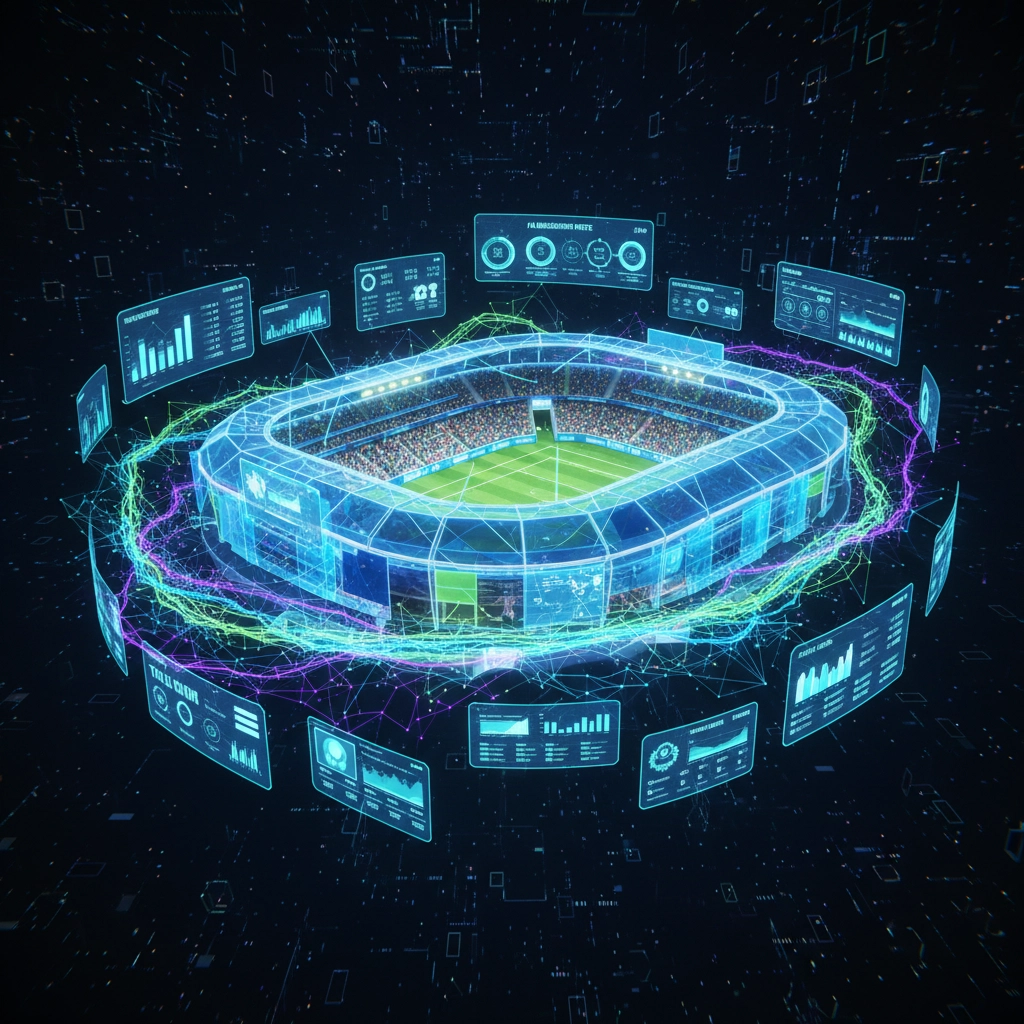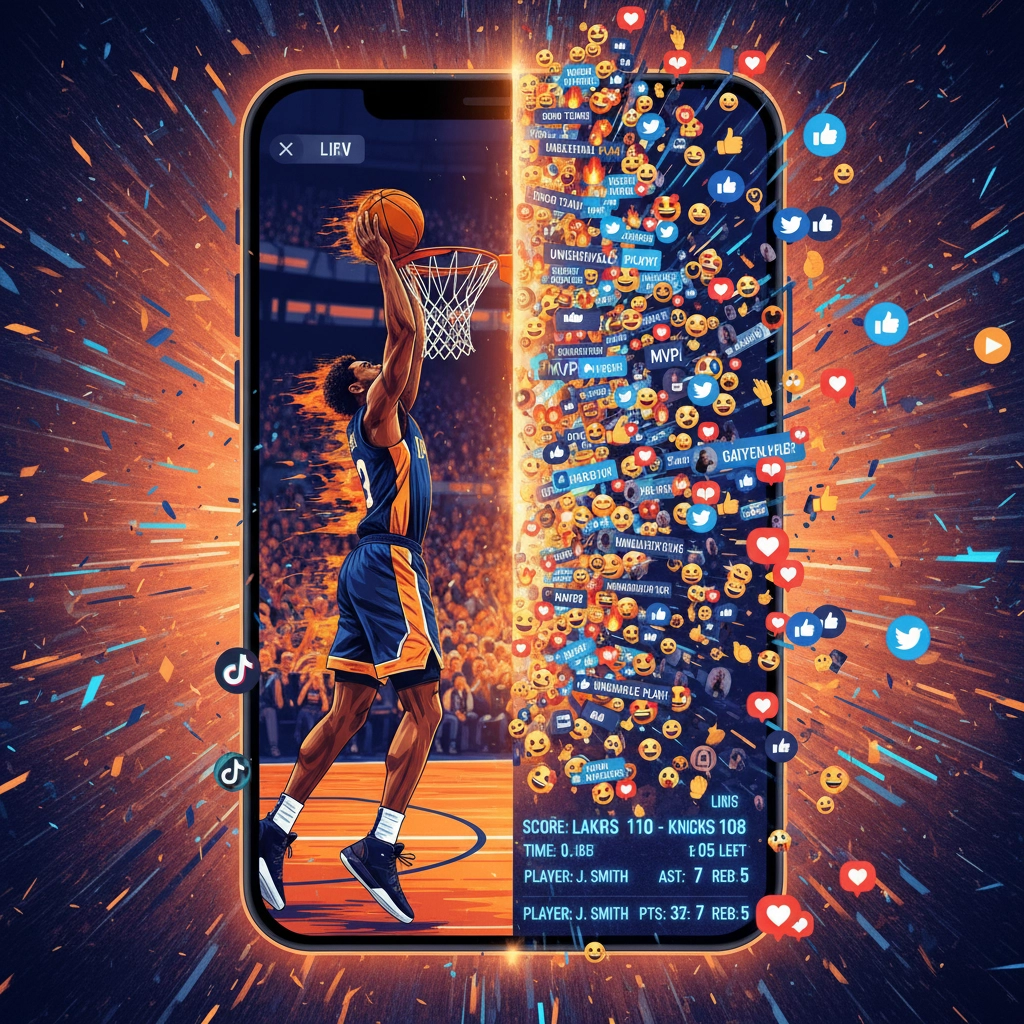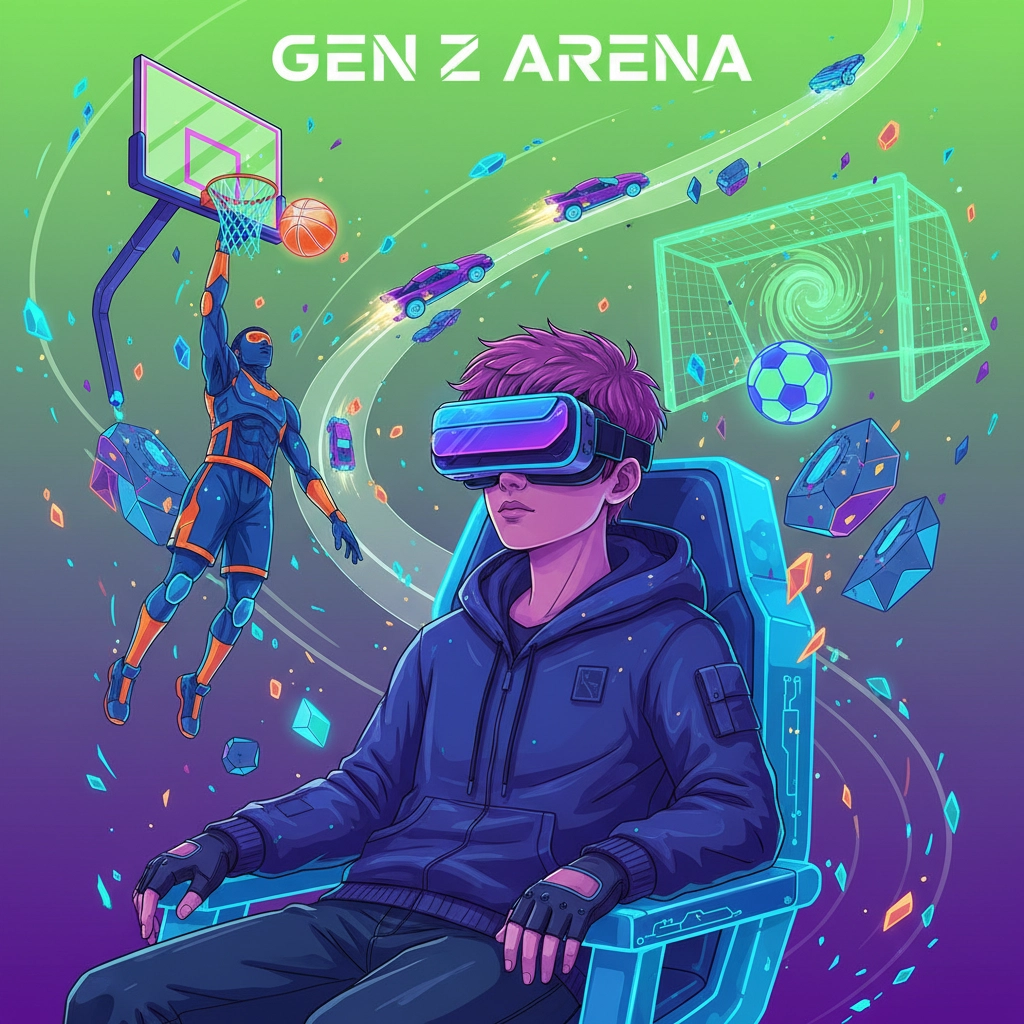Sports fan engagement undergoes fundamental transformation through artificial intelligence integration and evolving audience expectations. The convergence of technology and demographic shifts reshapes content consumption patterns across multiple platforms and devices.
Research indicates 85% of sports fans recognize value in AI integration within their sports experience. Additionally, 63% of surveyed participants express trust in AI-generated sports content. These metrics demonstrate significant acceptance of technological advancement in sports media consumption.
AI-Driven Personalization Systems
Artificial intelligence capabilities transform fan experiences through personalized content delivery, immersive platform development, and interactive engagement mechanisms. Sports organizations implement AI-enabled systems to analyze fan preferences and behavioral patterns.

AI systems deliver customized game highlights, streamlined ticket purchasing processes, and tailored content recommendations based on individual user data. Personalization extends beyond content selection to include customized camera angles, real-time player statistics, and interactive elements adapted to specific user preferences.
AI-powered personal assistants designed for sports fans work behind the scenes to tailor experiences in real-time, showing stylized visuals and augmented reality elements for casual fans while supplying statistics and predictive analytics for dedicated enthusiasts.
Machine learning algorithms process viewer behavior data to optimize content delivery timing, format selection, and engagement opportunity presentation. These systems adapt continuously based on user interaction patterns and feedback mechanisms.
Real-Time Engagement Requirements
Real-time game updates represent the primary priority for AI-enhanced sports engagement at 35% of fan preferences. Personalized content follows closely at 30% of surveyed responses. These statistics reflect the transition from passive content consumption to immediate, responsive engagement models.
Content format preferences include video highlights at 51%, post-event recaps at 37%, and player interviews at 32%. Mobile sports applications facilitate constant connectivity, with 73% of surveyed fans utilizing dedicated apps for sports updates and information access.

Real-time features enable voice and chat-based queries such as "Show me that goal from the goalie's view" or "How fast was that pitch?" AI systems provide instant responses and generated replay content based on these user requests.
Social media serves as the leading platform for accessing additional sports content, with 59% of surveyed social media followers engaging with influencers for analysis and predictions.
Interactive capabilities include live polling, real-time statistics overlay, and predictive analytics display during ongoing events. These features maintain audience attention and provide continuous engagement opportunities throughout sporting events.
Generation Z Engagement Patterns
Generation Z demonstrates distinctive sports consumption behaviors that differ significantly from previous demographic cohorts. While 38% of Gen Z actively expresses interest in sports, engaged members consume content through non-traditional channels including Instagram edits, online communities, behind-the-scenes content, and documentary formats rather than exclusively live game broadcasts.
Digital-first engagement strategies position Gen Z users at the center of interactive experiences. Personalization requirements include customized highlight reels focusing on specific players, tailored viewing angles, and adaptive technology responses to individual preference patterns.

Attention span modifications require content format adjustments and delivery method optimization. Gen Z users expect immediate access to relevant information, seamless platform transitions, and integrated social sharing capabilities across multiple digital touchpoints.
Only 27% of surveyed fans expect their sports consumption habits to remain unchanged over the next two years, with 80% believing AI will significantly influence their sports following patterns by 2027.
Social media integration serves as a primary engagement mechanism for Gen Z sports fans. Content distribution through social platforms, influencer partnerships, and community-driven discussion forums represent essential components of effective Gen Z engagement strategies.
Immersive Technology Implementation
Augmented reality and virtual reality technologies create unprecedented fan engagement opportunities through AI-driven experiences. AR overlays display real-time statistics, player performance analytics, and predictive insights directly within live game viewing experiences.
Virtual reality systems enable fans to experience historical sporting moments from new perspectives, including legendary game recreation and athlete viewpoint experiences. These technologies provide customizable viewing angles and virtual meet-and-greet opportunities with players and sports personalities.
Facial recognition technology streamlines stadium experiences through improved security measures and personalized service delivery. Systems provide customized greetings and targeted offers based on individual fan identification and preference history.
AI-driven virtual and augmented realities revolutionize fan experiences, bringing games to life in ways previously impossible through traditional broadcasting methods.
Immersive technology adoption requires infrastructure development, content creation processes, and user interface optimization to ensure seamless integration across multiple platform environments and device specifications.
Future Industry Implications
Sports industry adaptation to technological advancement and behavioral shifts represents both opportunity and necessity for organizational survival. Organizations implementing rapid technological integration cultivate passionate new audience segments while resistant entities risk declining market relevance.
More than half of surveyed fans (56%) desire AI-powered insights and commentary for past, current, and future sporting events. Additionally, 33% believe real-time translation technology will significantly impact international sports consumption experiences.

Monetization strategies must recognize and capitalize on new fandom expression modes including interactive features, virtual attendance options, and metaverse meet-and-greet experiences. Traditional viewing metrics require supplementation with engagement measurement across multiple digital touchpoints and interaction types.
Fan-first approaches amplified through technology implementation acknowledge Gen Z fandom expression through digital communities, personalized content curation, and social sharing behaviors rather than traditional broadcast viewership exclusively.
The convergence of AI, real-time capabilities, and immersive technologies reshapes the entire sports industry landscape through fundamental engagement model transformation.
Industry success requires comprehensive technology integration, behavioral pattern recognition, and adaptive content delivery systems that respond to evolving fan expectations and consumption preferences across demographic segments and platform environments.
